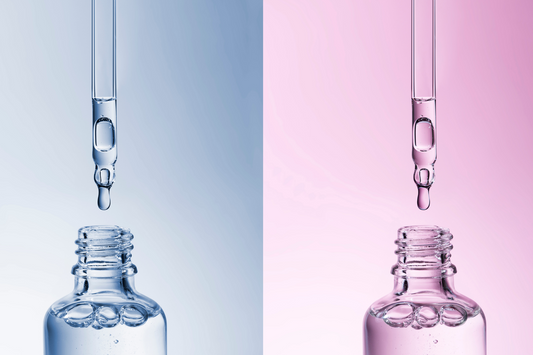Fish oil – while it may not sound pleasant at first, this fatty oil is packed with nutrients that can be extremely beneficial to your overall health. Like many other vitamins and oils, it should be used in good practice, especially when being used to increase your hair growth specifically. There are a few things to avoid and look into when using fish oil. Read more below to find out if fish oil is a good fit into your hair care routine!
Benefits of Fish Oil
What exactly is fish oil? Fish oils are extracted from (you guessed it), fish. They are derived from fattier fishes such as tuna or mackerel, to name a few. The key benefit of fish oils is that they contain extremely nourishing omega-3 fatty acids. An essential fatty acid, omega-3s are known to promote various health benefits including hair growth, nail growth, and skin brightness as well.
Forms of Taking Fish Oil
Fish oils are most commonly taken in the form of pill or supplement, or through consumption in foods rich in omega-3s (such as the fish itself). Fish oils are also available in liquid form.
There are many different brands that sell omega-3 supplements, and many of them vary in cost and quality. Some are derived from various different fishes so be sure to read through ingredient lists when making a selection. We recommend doing general research beforehand to find which brand of supplements best fits your needs. We also suggest speaking with your healthcare provider if you are in between deciding which fish oils to choose. Common places that you are able to purchase fish oil include drug stores and online shopping sites such as Amazon.
Daily Routine
If you’re looking to incorporate fish oils into your daily routine in terms of hair care, it is generally consumed as a pill once daily. There is no officially recommended dosage of fish oil to take, but rather check your own brand of supplements to see the average dosage and serving size; 250-500 milligrams is the standard amount per day according to mainstream sources.
Does Fish Oil Really Benefit Hair Loss?
Like many other vitamins and supplements, it’s hard to pinpoint if they are directly stimulating and promoting a specific part of your body. Since vitamins and supplements are usually taken orally as a pill, your body digests it, and it becomes hard to track where exactly the vitamins are being directed to. But in the research done in the relationship between hair loss and fish oil, there has been a generally positive correlation. The omega-3s can be linked to promoting your hair to enter the growth phase (aka the anagen phase).
Side Effects to Fish Oil
If you’re sticking to the average dosage of fish oil per day, there shouldn’t be too many negative side effects, but some people have reported mild side effects such as:
- Diarrhea
- Bad breath & fishy after-taste
- Indigestion
If you feel seriously ill after taking fish oil, seek professional help immediately.
So What's the Consensus on Fish Oil Benefits for Hair?
Fish oils may not reverse hair loss in the case of hormonal changes or underlying medical conditions, but they can play a positive role if your hair thinning stems from mild conditions such as stress or lack of nutrients. While the evidence is not overwhelmingly strong, fish oils and omega-3s can seemingly help aid the hair growth process.
While these essential nutrients are a great way to promote a healthy head of hair, we at Revela understand that this is not always enough to win the fight against hair loss. That’s why, in addition to our lead ingredient ProCelinyl™, we have fortified our Hair Revival Serum with important nutrients such as Niacin (vitamin B3), Biotin (vitamin B7), Thiamine (vitamin B1), Pantothenic Acid (vitamin B5), and L-Methionine (an amino acid) to provide direct support and nutrition where and when it’s needed the most.





